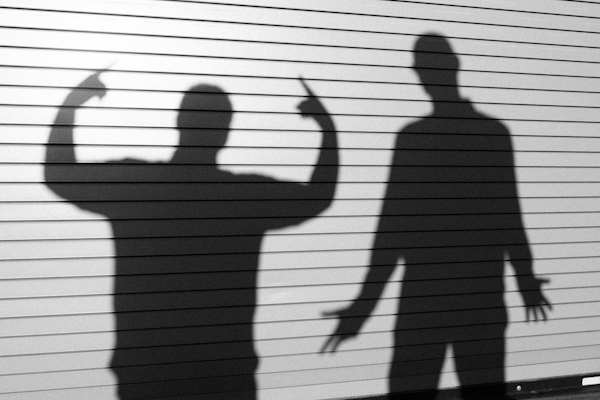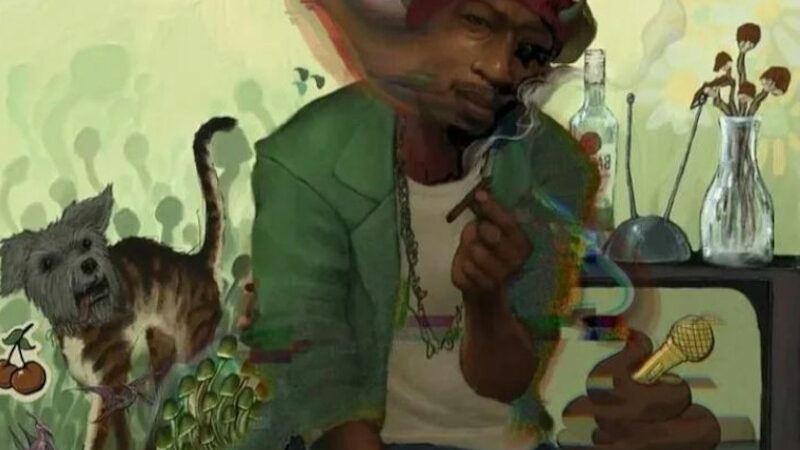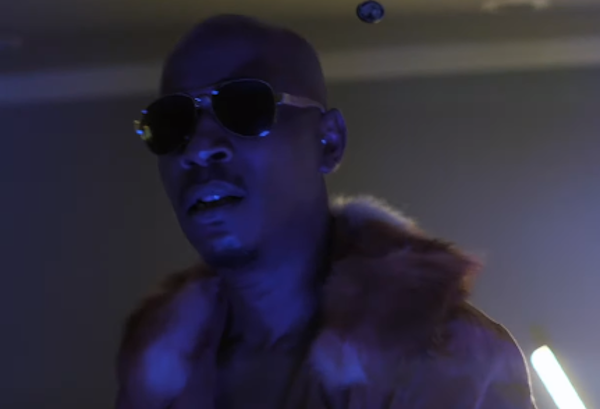Throughout the 1960s and early 1970s, an elite group of musicians known as the Wrecking Crew defined the West Coast sound. Session players of the highest caliber, they were called in to back artists from Frank Sinatra to Sonny and Cher to the Beach Boys. They were the musicians behind Phil Spector’s “Wall of Sound,” the top-tier selected to track on every hit that defined the better part of two decades.
Tommy Tedesco was one of the guitarists in the Wrecking Crew. When he was diagnosed with terminal cancer, his son Denny took on the tremendous goal of documenting the historic session players via interviews with the musicians themselves as well as producers and artists who worked with them.
Tedesco began working on his documentary, simply entitled The Wrecking Crew, in 1995. It took him almost 15 years to complete the work, which in fact is not complete, as reams of footage remain for additional content. The documentary itself, however, has been screened privately and is now making its national debut in select markets. The goal is to release to DVD, and to do so, Tedesco is working diligently to raise funds via screenings and 501c donations.
As much as it pays homage to Tommy Tedesco and his colleagues, The Wrecking Crew is also a slice of musical and cultural history, capturing a time in the music industry and American lifestyle that will never be duplicated. It is mandatory viewing for music and history fans alike.
Planet Ill spoke with Denny Tedesco about the blood, sweat and tears that went into making his vision a reality.
Planet Ill: What is your background as a director and producer?
Denny Tedesco: I started the project when I was still a technician; a grip on films, and doing some production. I’ve been doing this since 1983. I’d done everything in the film business except direct. When I started this project, I knew the story and friends were helping me. I was shooting film — this was in 1995 and 1996 — and I kept shooting and getting more into production stuff. I was doing interviews with A&E, Biography and TV Land, and that helped me. I also directed a jazz video of my father in 1986, a conceptual piece.
Planet Ill: Are you also a musician?
Denny Tedesco: I took lessons but I didn’t practice, which is now very frustrating. I took a lesson three weeks ago for the first time in 35 years. My wife is English and knows every Broadway song and show tune, but I couldn’t tell you one lyric. My kids know more lyrics than I do. I hear beats and solos; that’s what I grew up with.
Planet Ill: From the beginning, you were responsible for funding the documentary.
Denny Tedesco: Unfortunately and fortunately, the project was always exclusively mine because no one would pay for it. I could

not get financing for it. In 1997 my father passed. I had a 14-minute trailer and people said, “It’s great; I’d love to see more.” I said, “Help us out,” and they’d say, “You’ll never finish it, there’s too much music, you can’t afford it.” I kept going. Months would go by, and by then I was shooting video, which was easier than film because I could do it myself. I owned the camera. In terms of producing, it’s different from a half million dollar project, a commercial where there’s extreme pressure to come in under budget.
This was my project. I had no money. Either I couldn’t do anything, or a job would come in and I could do something. As a filmmaker, they say never put your own money into your project. It was different for me. This was my father and his friends, and there was a timeline because they were dying. [Percussionist] Julius Wechter and [trombonist] Lew McCreary were both very ill when I interviewed them, and they passed within a week of each other [six months later].
Without my editor, Claire Scanlon, I would never be where we are. I was very fortunate because she came from a mutual friend, a director I was producing for, and she did a month for free to see what we had. After a week, I knew she was perfect. Then she took a real job because I couldn’t pay her, then I got someone else who totally ripped me off. I wasted lots of money to get nothing, and then Claire came back, thank God.
Planet Ill: This documentary was a labor of love. Were there some difficult moments while watching the footage? Did it help with the grieving process?
Denny Tedesco: That’s come up a few times, people ask, and I thought it would have been, but no. I never had problems with it because, for me, my father never left. He’s with me right now and I never lost touch with him. The lessons he taught me I use every day at work and with this project The reason the project got this far is because at times I would lose my mind and start to yell, and I could hear him say, “Don’t tell off the leader unless you might never want to come back.” My only regret is that he never got to see anything cut. It would have been pretty cool and he would have enjoyed it. There are a lot of things I wish. When I do an interview, I wish I could go back and ask him, “What do you think?”
Planet Ill: How did you gather the talent and schedule the interviews? Did anyone decline an interview?

Denny Tedesco: In 1995, I first talked to [bassist] Carol Kaye, [drummer] Hal Blaine, [saxophonist] Plas Johnson and my father. I wanted a “voyeurism” interview to let them talk, and I knew which way to guide them. Then I did individual interviews with people like Earl Palmer, Cher and Dick Clark. I got Jimmy Webb; I took a crew to Arizona to talk to Glen Campbell. It took years. I could never get to Brian Wilson. Leon Russell turned it down. I was very disappointed, but he doesn’t want to be on camera.
Planet Ill: It’s such an important project because it’s also a piece of history in so many ways.
Denny Tedesco: At the beginning, Claire said, “You’ve got to stop interviewing, because people aren’t going to fall in love with everybody if you put more and more people in. Find the characters you love and live with them. I agreed. But I kept on interviewing because I didn’t want the history to go. I’ll keep it for the DVD. I have so many interviews that aren’t in the film. James Burton is in the outtakes. But it was already cut and I’ve got to live with what I’ve got. Historically, I tried to get as many people as possible.
Planet Ill: What is the key to making a good documentary?
Denny Tedesco: I knew I had it when I had 20 minutes cut and the Rock & Roll Hall of Fame invited Hal Blaine and myself to Cleveland. I didn’t show Hal anything in case he didn’t like it! If you knew Hal, he’s a jokester and a showman, and when we got to the Hall of Fame, they played the clip to a full house and did an interview with us. They started with Hal, and he’s wearing his big sunglasses. He broke down and started crying, literally convulsing, and he said, “Go with Denny. I just saw all my friends that I’ve missed so much.”
I knew I had told the truth and made a film that I could be happy with, and most importantly, that the musicians could be happy with. Something else that hit me was when the director who put Claire and I together said, “This is OK, but you’re not telling me why it’s so special.” He was pushing us to tell it from my point of view and why I was making it.
He said, “You should include yourself.” I never wanted it to be that way, but I went with it and started with explaining why it had come together. Then people would ask, “Where is the narrator? Why did he leave?” Or they would ask, “Is it about your father or about the Wrecking Crew?” I took all of these notes during the test screenings and finally a friend said, “Just say, ‘This is a story about my father and his extended family, the Wrecking Crew.’”
Planet Ill: What do you hope musicians will learn from watching this documentary?
Denny Tedesco: Something my father always taught in seminars, he said, “We all take up an instrument because we want to play music. The first time you get paid, it’s ‘Wow, I got paid! But to make a living, it’s an extremely small minority.” He said it’s easier to join the L.A. Rams than to become a session player like he was. You’ve got to have luck, know your instrument and have a lot going for you, but you don’t give up. You did it because you wanted to play. The greatest line came from a music executive who came out of a screening here in L.A. and said, “I look forward to going back to my office now and working.” Love what you’re doing is really where it’s at to me. And work hard.
The Wrecking Crew will be screened at Industry City in Brooklyn on Sunday, March 13. For more information and a complete schedule of screenings and cities, visit www.wreckingcrewfilm.com/upcoming.html.
Elianne Halbersberg is a freelance writer whose work has also appeared in Mix, Premier Guitar, Electronic Musician, Audio Media, Ink 19 and many other magazines and websites.
Follow Us on Twitter @ http://twitter.com/planetill
Join Us on the Planet Ill Facebook Group for more discussion
Follow us on Networked Blogs





One thought on “Denny Tedesco Tells The Story Of The Wrecking Crew”